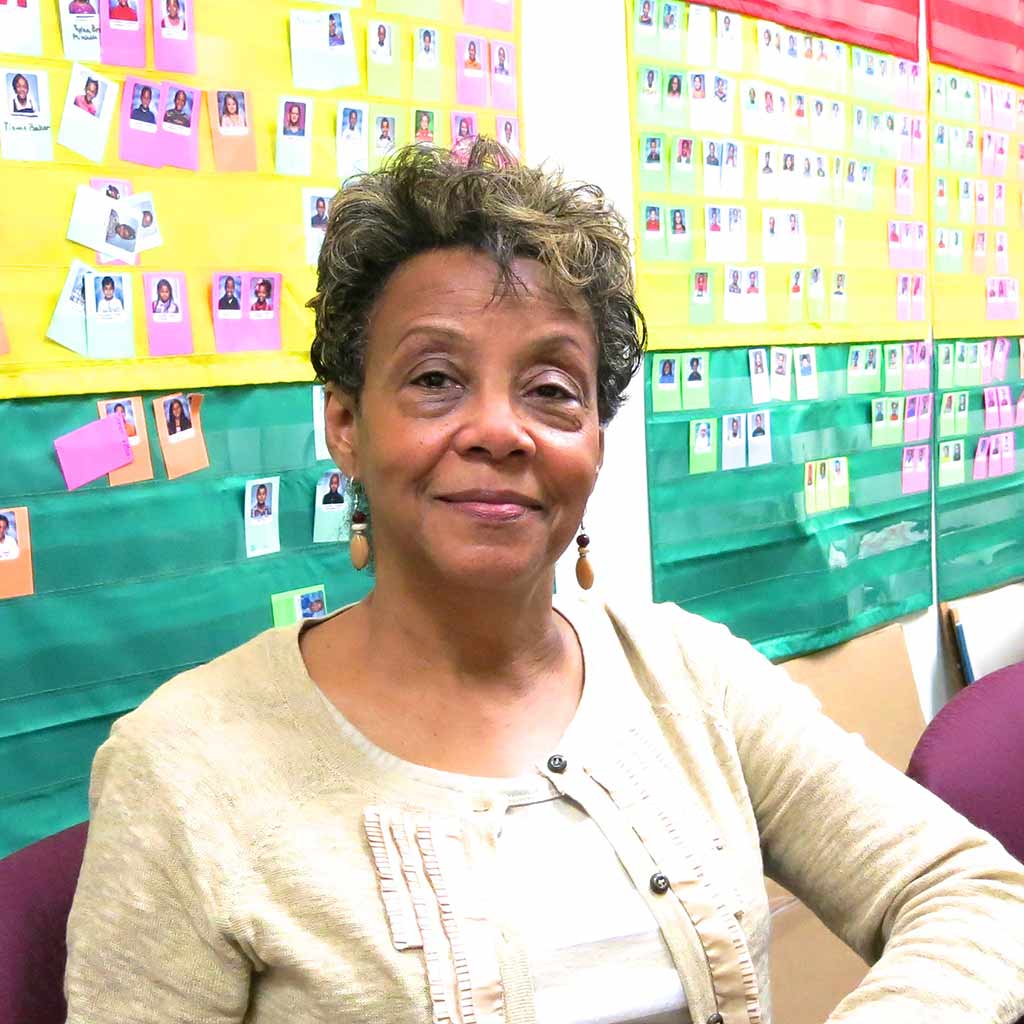
You have to have heart for this work. It comes from the heart and not from looking at a job title or salary. You do the best job you can when it is in your heart to be a family and community specialist. It means you are going to have to talk to families and form community partnerships.
1. What led you to the mission of being a family and community specialist?
I came into the school system to help support the teachers.  I work with the teachers to help support the students and parents. My main job is to engage families and the community in involvement for the success and achievement of the children in school. I’m a liaison between home, family, and school.
I work with the teachers to help support the students and parents. My main job is to engage families and the community in involvement for the success and achievement of the children in school. I’m a liaison between home, family, and school.
I didn’t have to have a special degree. I had to be a high school graduate with sixty credit hours or take a paraprofessional test to get hired. I took the test. The rest is total experience. I’ve had experience working with schools, families and children for many years.
2. What does this mission mean to you?
It means getting involved in the lives of the children at school. This is what I love most about the job – it is all about the kids.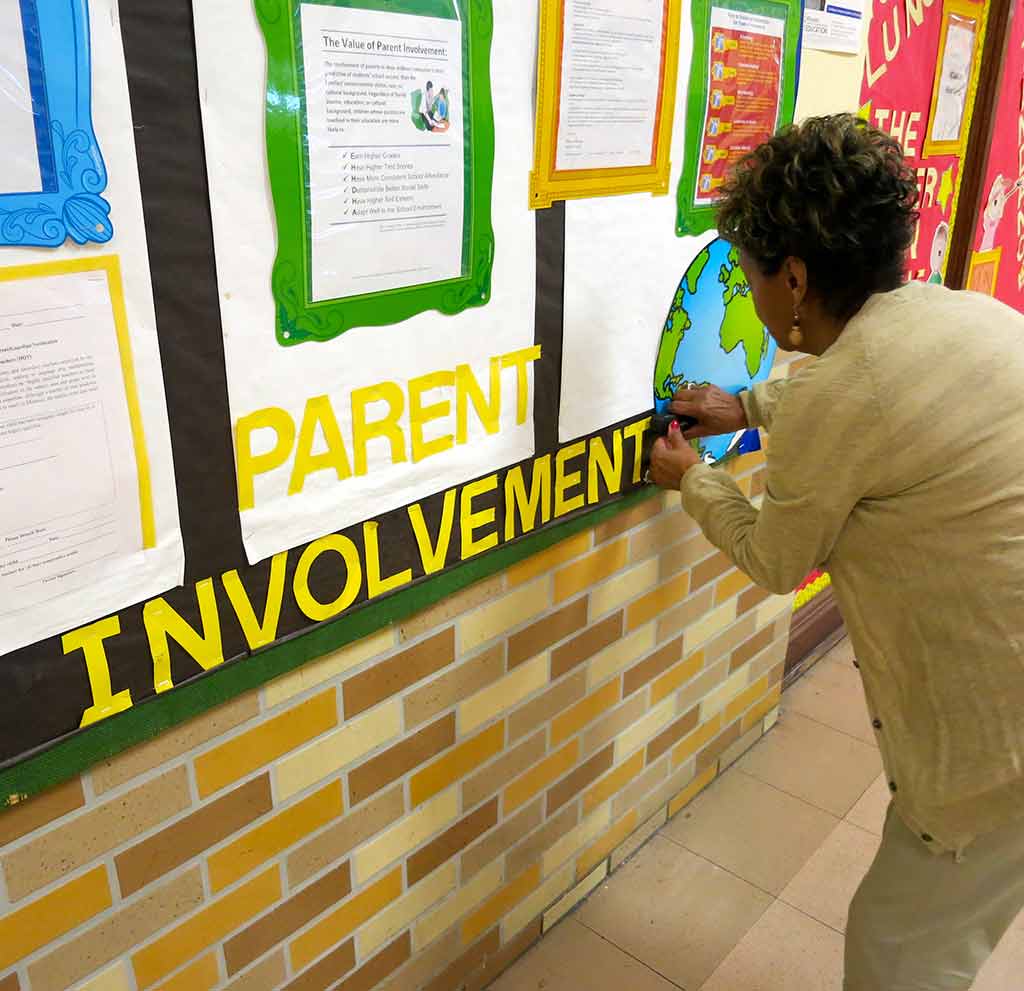 I am able to build a relationship with the kids and the parents. I am helping them in any area they need help.
I am able to build a relationship with the kids and the parents. I am helping them in any area they need help.
I have a compliance book that I have to show the school district. I put pictures in there and show what we do here at the school for the children and parents. I don’t just want to tell about it, but I include pictures so they can actually see all the good that is happening.
3. What was your best day being a family and community specialist?
I’ve been doing this job for fifteen years. 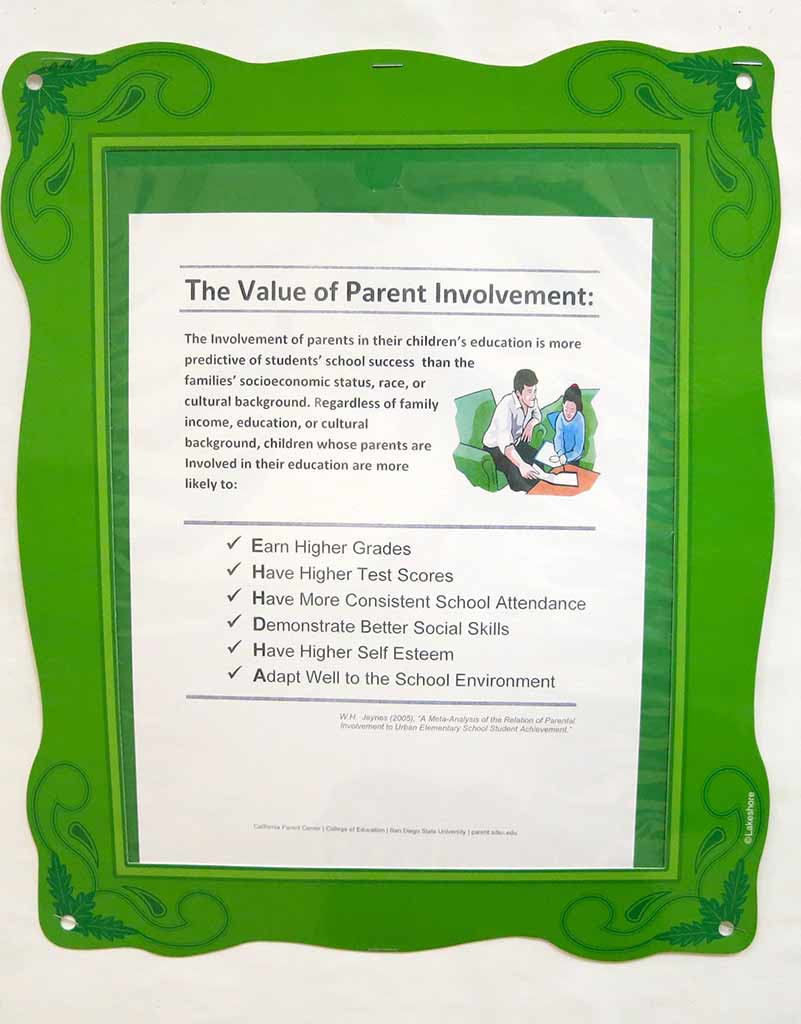 I don’t have any one particular day. My goal is to get that parent and child to form a relationship together. When I can meet a need and see that smile on their faces — that is the best day for me. I have accomplished that. I do it one child at a time.
I don’t have any one particular day. My goal is to get that parent and child to form a relationship together. When I can meet a need and see that smile on their faces — that is the best day for me. I have accomplished that. I do it one child at a time.
There was a situation where a parent and child needed housing. They were homeless. I was able to intervene there with her and the child. Now she is doing well and has her own apartment. That’s the kind of thing. That’s what I like. (Click on the image to enlarge it and learn more about parental involvement as a family and community specialist.)
4. What was your worst day being a family and community specialist?
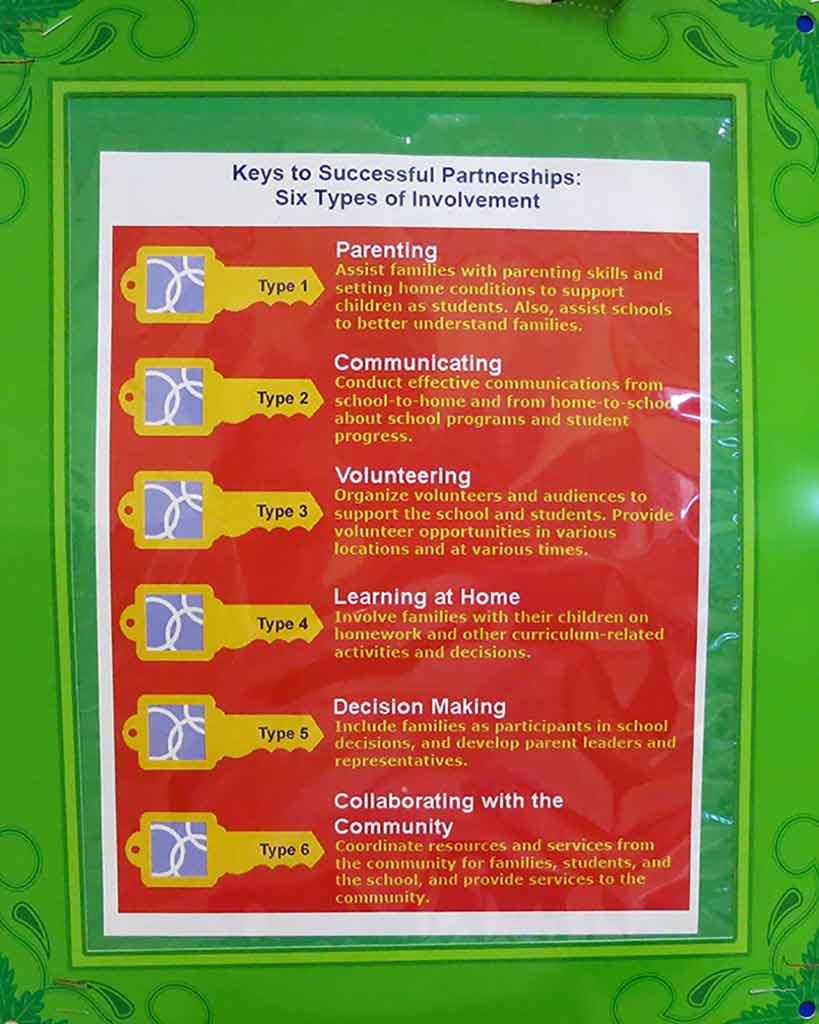 The worst day would be when I can’t get through. I want to talk to them but I can’t get through. With one parent I didn’t get through to where we needed to be, but I won’t give up because I know I will get through. I’ll just wait. The time will be right and I’ll do it. I’ll get through. We will get to where we need to be.
The worst day would be when I can’t get through. I want to talk to them but I can’t get through. With one parent I didn’t get through to where we needed to be, but I won’t give up because I know I will get through. I’ll just wait. The time will be right and I’ll do it. I’ll get through. We will get to where we need to be.
(Click on the image to enlarge it and learn more about forming partnerships with school, parents and students.)
5. How did you survive your worst day?
My morning routine is to pray. 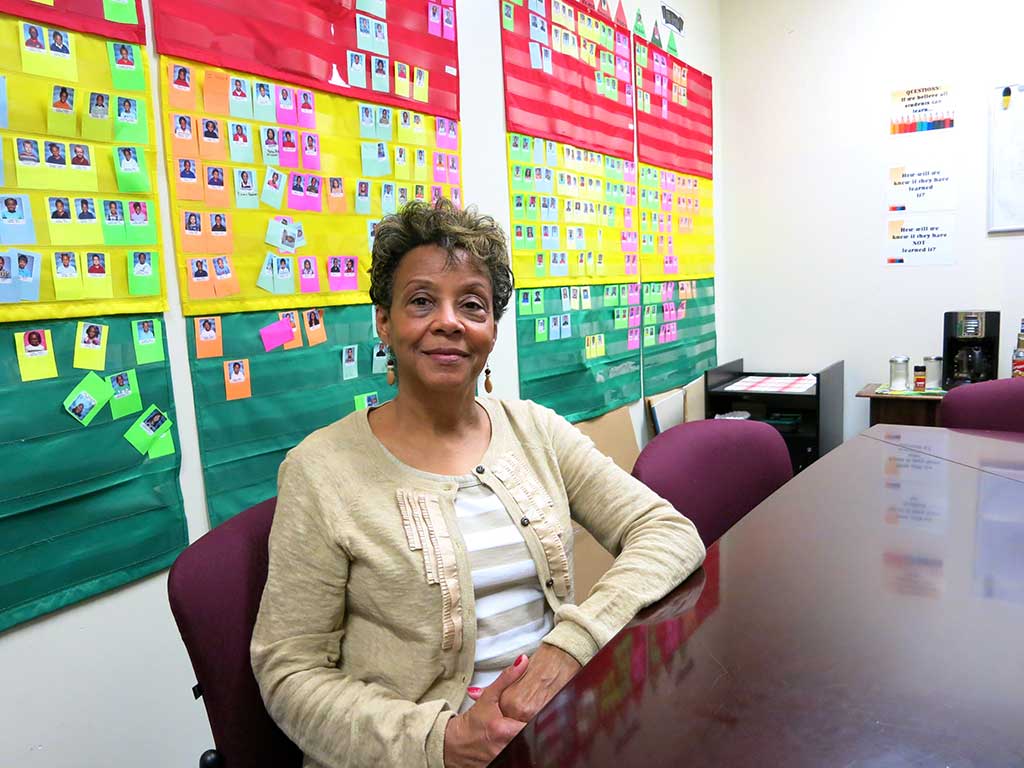 I am a Christian. I pray during the day. I pray before I leave. It is a part of me to be that way. I don’t take, “No” for an answer. I don’t deal with negativity. It can’t be a major factor because I am going to reverse it. It will become positive. I’m going to take that negative situation or negative whatever, and it will become positive because that is the way I am going. That is the route I take. I won’t do it any other way. That is what keeps me going.
I am a Christian. I pray during the day. I pray before I leave. It is a part of me to be that way. I don’t take, “No” for an answer. I don’t deal with negativity. It can’t be a major factor because I am going to reverse it. It will become positive. I’m going to take that negative situation or negative whatever, and it will become positive because that is the way I am going. That is the route I take. I won’t do it any other way. That is what keeps me going.
6. What advice do you have for someone who would like to follow in your footsteps?
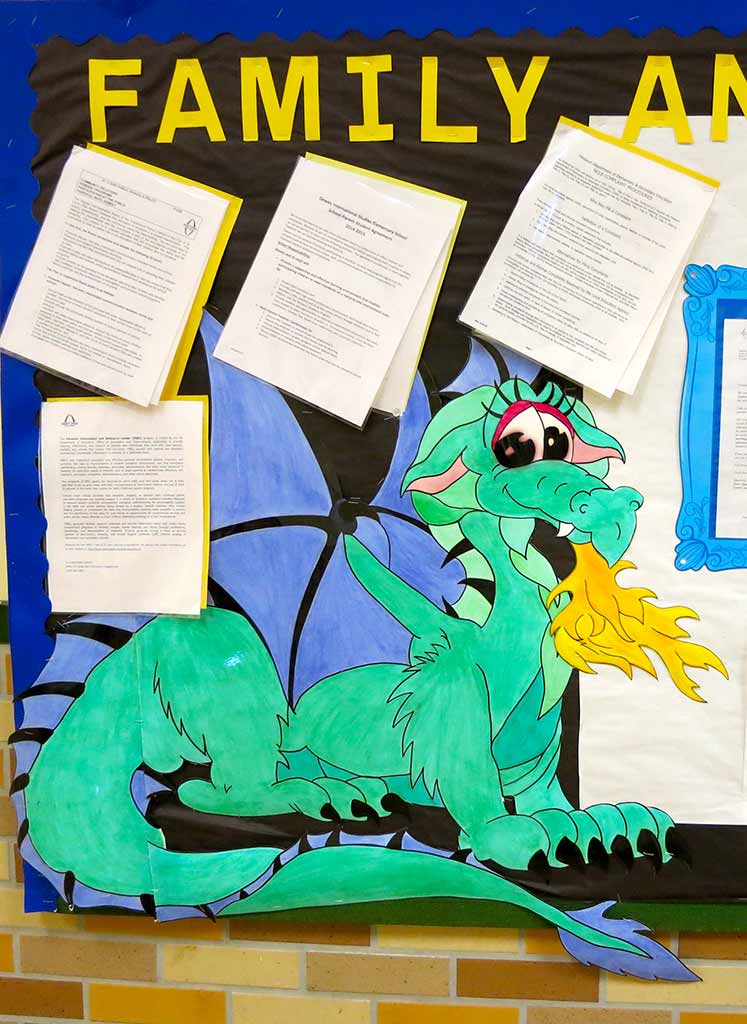 Make sure that that is what you really want to do. You have to have heart for this work. It comes from the heart and not from looking at a job title or salary.
Make sure that that is what you really want to do. You have to have heart for this work. It comes from the heart and not from looking at a job title or salary.
Make sure it is really in your heart to do this. You do the best job you can when it is in your heart to be a family and community specialist. It means you are going to have to talk to families and form community partnerships. You have to form relationships. You work from there.
- « Previous person: Barbara Lomker
- » Next person: Curtis Brennecke